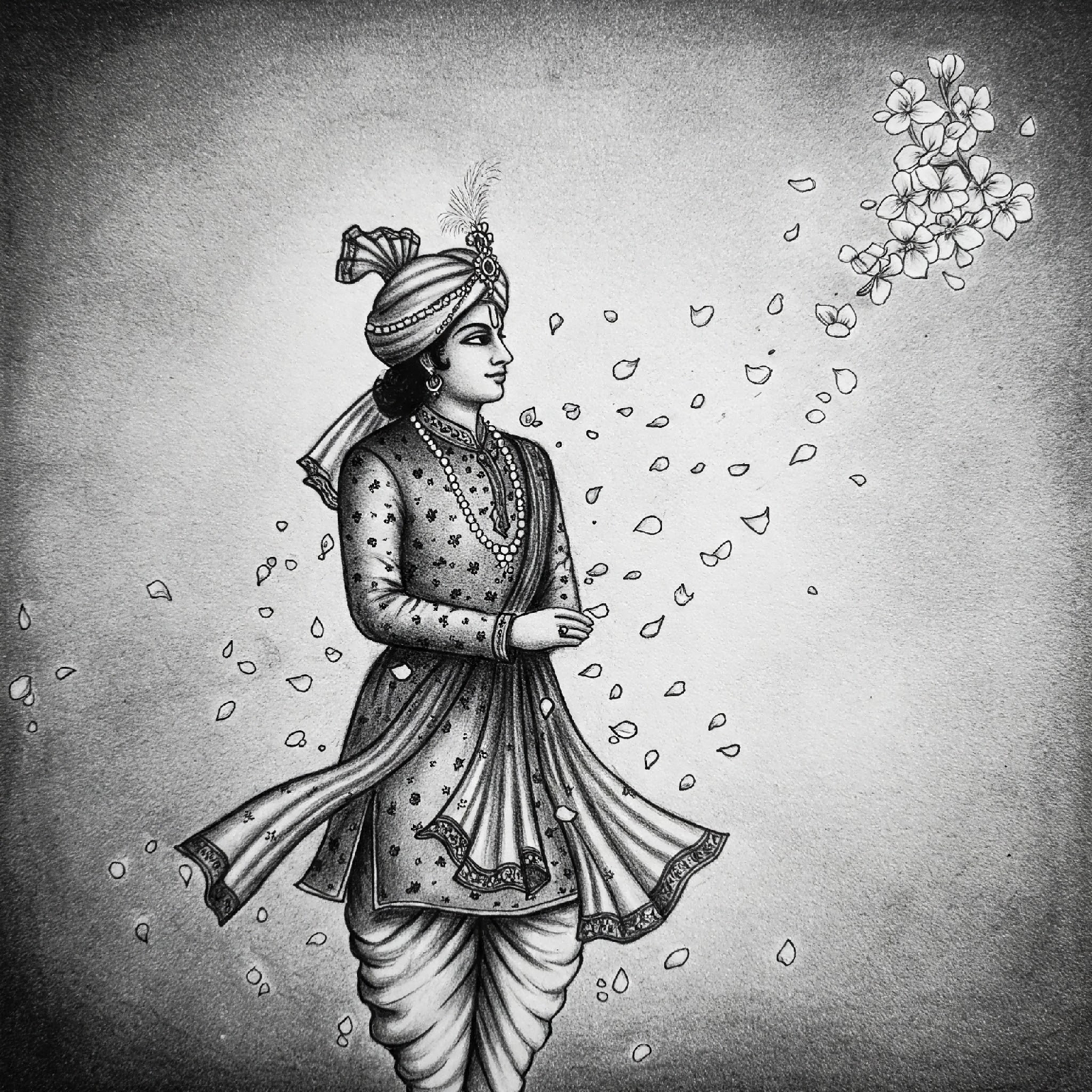The Rat and The Chicken
In the early days of the world, when the earth was still young and the ways of men and beasts were not yet divided, the rat and the chicken were close companions. They lived in harmony and often undertook tasks together, sharing their fortunes and misfortunes alike.
One day, they agreed to go fishing. The chicken, through skill or perhaps fortune, caught many fish, while the rat caught none. As they prepared to return home, the rat, seeing the chicken’s abundant catch, pleaded for a share.
Moved by friendship and goodwill, the chicken offered the rat a few fish. Yet the rat’s desire was not eased. He continued to ask for more, and the chicken, wishing not to quarrel, gave what he could. Eventually, only the largest and finest fish remained in the chicken’s basket.
“This one,” said the chicken, “I have kept for my family. They will be waiting.”
But the rat, overtaken by greed, demanded the final fish as well. The chicken, though gentle, refused.
Enraged, the rat threatened him, saying, “If you do not give me that fish, I shall bite off your leg.”
The chicken still would not yield. The rat, consumed by fury, turned away and disappeared into the undergrowth. Saddened by the loss of his friend and the bitter turn of the day, the chicken gathered his things and made his way home.
Unbeknownst to him, the rat had devised a cruel plan. He hid among the bamboo groves along the path, knowing the chicken would pass that way. As the chicken approached, the rat sprang forth and bit off his leg.
The wounded chicken managed to reach home, and when his brothers and sisters learned of what had happened, they were overcome with anger. Seeking justice, they found the rat and captured him, though he tried to hide in the darkest corner of the house.
Rather than harm him, they set forth a punishment.
“You shall travel to the far ends of the earth,” they declared, “and bring us food the like of which we have never seen. Only then will your crime be forgiven.”
Now, in those days, when an animal broke a bond of friendship, he was bound by ancient law to make amends—or suffer the weight of dishonor that would follow him all his days. And so the rat set forth, traveling for many days until he reached the place where the sun sinks behind the mountains.
There, in that distant land, he discovered a strange and beautiful plant. It bore clusters of grains, pale and golden, swaying in the wind. It was rice—the first ever seen.
The rat gathered the plant carefully and returned home. Offering the rice to the chickens, he said, “This is the gift I bring in place of what I destroyed. May it bring joy and nourishment to your people.”
The chickens were astonished. They tasted the rice and found it unlike any food they had known. But before they could rejoice, the rat spoke once more.
“I ask one thing,” he said. “From this day forward, whenever this grain is eaten, I must be given the first bite.”
So taken were the chickens with this new food that they agreed without protest.
And thus it is, even now, that rats come first to the grain stores and are never far from the harvest—for it is said they still claim their bite, as promised long ago.
Cultural Note & Reflection
This folktale, like many passed down through generations in oral traditions, reflects the deep wisdom embedded in everyday life. Stories such as this often emerged from rural communities, where animals were not only part of the environment but also symbolic of human traits and behavior. The rat and the chicken, familiar to every household, became vessels through which lessons were taught—lessons not written in books, but lived and remembered.
Though simple on the surface, this tale echoes universal truths. It speaks to the importance of fairness, the limits of tolerance, and the long road to forgiveness. In a world that often forgets to pause and reflect, such stories remind us to look inward—to examine our actions, our intentions, and the impact we have on others.
As we preserve and share these traditional stories, we not only honor the voices of our ancestors but also carry forward the moral fabric they wove—thread by thread, word by word.





Comments
Post a Comment